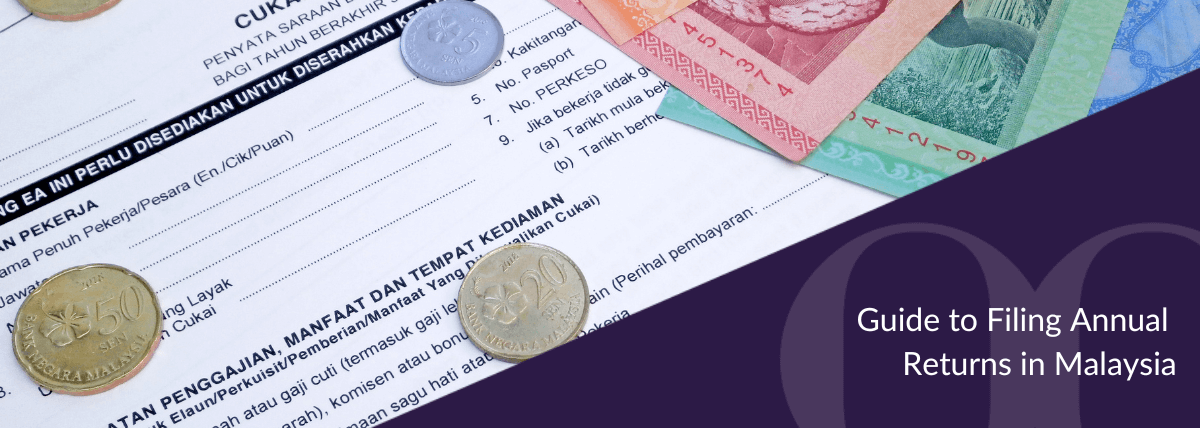Planning a Virtual AGM in Malaysia?
Virtual Annual General Meetings (AGMs) provide greater flexibility and engagement opportunities for all of your company’s shareholders regardless of their location.
However, there are many practical elements to consider when planning a virtual AGM. These include your company’s readiness to go digital, how to do a live Q&A, how polling will occur, which virtual meeting platform to use and more.
But, before you even get to the detailed planning stage, it is essential to review your company’s constitution to check if virtual AGMs are permitted and the AGM regulatory requirements to ensure that your company can meet its statutory obligations.
Below is a guide to everything you need to know about running a virtual AGM in Malaysia.
01 An overview of the current AGM requirements in Malaysia
Virtual, fully virtual and hybrid AGM limitations
Companies can only run virtual, fully virtual or hybrid AGMs if their constitution or trust deed allows them to.
AGM meeting inclusions
As per section 340 of the Companies Act 2016 (“CA”), publicly listed companies must discuss the following at their AGM:
- audited financial statements and the reports of the directors and auditors;
- the election of directors in place of those retiring;
- the appointment and the fixing of the fee of directors; and
- any resolution or any other business included on the meeting notice or as per the company’s constitution.
Timing of AGMs
The Guidance and FAQs on the Conduct of General Meetings for Listed Issuers (“Guidance Note”) issued by the Securities Commission Malaysia (SC) on 18 April 2020 and revised 16 July 2021 states:
Under section 340(2) of Companies Act 2016, a company shall conduct its annual general meeting (AGM)–
(a) within six months of the company’s financial year; and
(b) not more than 15 months after the last preceding annual general meeting.
In relation to listed real estate investment trusts (REITs), paragraph 13.18(a) of the Guidelines on Listed Real Estate Investment Trusts (Guidelines on Listed REITs) requires a management company to hold an annual general meeting–
(a) within four months of the REIT’s financial year end; and
(b) not more than 15 months after the last preceding annual general meeting.
Notice of AGM
The CA states that all shareholders must be sent a notice in writing about the AGM at least 21 days before it is being held. In addition, publicly listed companies must:
- advertise the notice of AGM no later than 21 days before it occurs in at least one nationally circulated daily newspaper in Bahasa Malaysia or English;
- send the notice of AGM in writing to each stock exchange where the company is listed; and
- make an announcement to Bursa Malaysia Securities Berhad 21 days before the AGM is held.
AGM venue and member participation
The main AGM venue must be in Malaysia and with the chairperson present at this venue according to section 327 of the CA. Further, the venue must allow members to be able to participate and exercise their rights to speak and vote at the AGM using any technology or method.
Meeting quorum
To achieve quorum, there must be at least two members personally participating in the meeting or by proxy, pursuant to sub-section 328(2) of the CA.
Voting scrutineer
At least one scrutineer must be appointed to validate the votes cast at an AGM whether on-site or remotely.
02 How COVID-19 has impacted these AGM requirements
In response to COVID-19, the Malaysian Government have implemented a number of physical distancing and other safety precautions measures, including:
- a movement control order (MCO);
- a conditional movement control order (CMCO);
- a recovery movement control order (RMCO);
- an enhanced movement control order (EMCO); and
- standard operating procedures (SOPs).
Companies have started to conduct virtual AGMs to mitigate risks associated with Covid-19 and comply with Guidance Note on AGM requirements issued by the Securities Commission of Malaysia (“SC”).
What are the definitions for Physical and Virtual AGM?
SC’s Guidance Note defines them as:
Physical AGM
“Conducted at a physical meeting venue(s) only, without any online participation.”
Physical AGMs are only an option during an RMCO, with the number of people allowed to physically attend subject to venue size and ability to comply with SOPs.
Fully Virtual AGM
“Conducted online where all meeting participants including the Chairperson of the meeting, board members, senior management and shareholders participate in the meeting online.”
Fully Virtual AGMs are a recommended option during any of the Movement Control Orders. They are the only AGMs allowable under an EMCO.
Virtual AGM
“Conducted online from a broadcast venue, where only essential individuals are physically present to conduct the virtual general meeting. All shareholders in a virtual general meeting participate in the meeting online.”
Virtual AGMs are a recommended option during an MCO, CMCO or RMCO. If held during an MCO, a maximum of 8 essential people are allowable at the broadcast venue. This increases to 20 people during a CMCO, and during an RMCO the number of people allowable is subject to venue size and ability to comply with SOPs.
03 What are the advantages and disadvantages of each AGM type?
Advantages | Disadvantages | |
Physical |
|
|
Fully Virtual and Virtual |
|
|
Digital AGM tools are no longer just ‘nice to have’, but essential
Data from the SC’s Corporate Government Monitor 2020 (CG Monitor) indicates that younger people prefer to participate in AGMs using remote participation and voting facilities (RPV). In all age groups (except the 71 years and older category), vast majority of shareholders stated that they would like to have the option of remote AGM participation.
In short, AGM participation in the future will be firmly rooted in digital technology. This means that it is important for companies to start making the transition now to running virtual AGMs.
Need help running your next Virtual AGM?
Our team of share registry experts here at BoardRoom are poised to support your business to deliver the best Virtual AGM possible. We have extensive experience in executing AGMs, scrutineering and also using an independent, thoroughly integrated and purpose-built e-polling platform, Lumi. Through our unique platform, your company can hold live Q&A discussions and authenticate shareholders in real-time at your next virtual AGM.
Speak to one of our share registry experts today to find out why we are the leading provider of shareholder support solutions in the Asia Pacific region.



